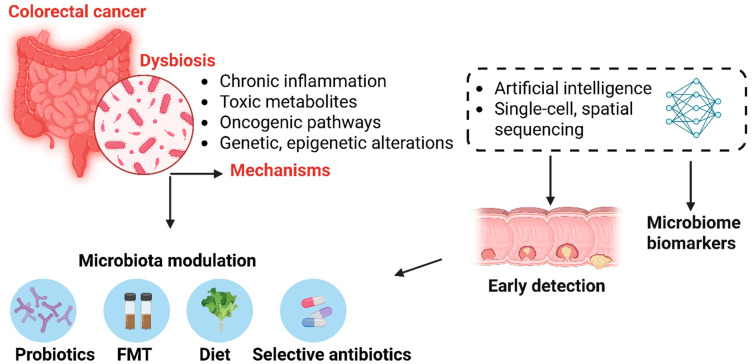Figure 1.
The role of gut microbiome dysbiosis in colorectal cancer pathogenesis and its potential for early detection and therapeutic intervention. Dysbiosis in the gut microbiota contributes to colorectal cancer (CRC) through several mechanisms, including chronic inflammation, production of toxic metabolites, activation of oncogenic signaling pathways, and induction of genetic and epigenetic alterations. Advances in single-cell and spatial sequencing, alongside artificial intelligence, enable the identification of microbiome—derived biomarkers for early CRC detection. Therapeutic modulation of the microbiota—via probiotics, fecal microbiota transplantation (FMT), dietary interventions, or selective antibiotics—offers promising strategies for CRC prevention and personalized treatment.

